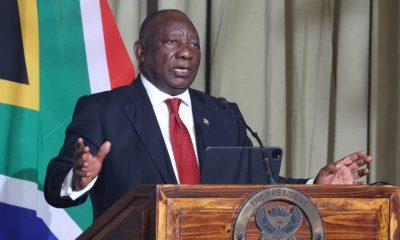411
World Bank Urges South Africa to Overhaul Regulatory Burden and BEE Laws to Revive Stagnant Economy

The World Bank has identified two major obstacles holding back South Africa’s economy: excessive regulatory rules and cumbersome Black Economic Empowerment (BEE) laws. In a recent report, the global lender urged the country to address these issues to escape what it termed “the wrong growth trajectory,” characterized by stagnant economic growth, high unemployment, and persistent inequality.
A Stagnant Economy in Need of Change
South Africa, Africa’s most industrialized economy, has struggled with an average annual GDP growth of less than 1% over the past decade. The World Bank attributes this sluggish performance to a combination of government mismanagement, corruption, and bailouts for underperforming state-owned enterprises. These factors have weakened public finances and stifled economic progress.
The report, released on Friday, highlights how the country’s regulatory environment has become a significant burden. “The burden of institutions has become excessive — not only for businesses and citizens but also for public administration,” the World Bank stated. It pointed out that complex regulations and BEE policies, while well-intentioned, have created inefficiencies and opened doors for corruption.
The Challenge of BEE Laws
BEE laws, introduced after the end of apartheid in 1994, aim to redress historical inequalities by requiring companies to allocate 30% ownership to historically disadvantaged groups. However, the World Bank argues that these policies have become overly complex and counterproductive. “Interventions such as Black empowerment policies and direct-support programs have become so cumbersome that they smother the implementation capacity of the public administration,” the report noted.
The World Bank suggested that South Africa could streamline these policies by adopting equity-equivalence investment programs, which would simplify compliance and reduce administrative burdens. It also emphasized the need to rebalance the economic model by making it easier for foreign and domestic investors, as well as young workers, to enter the market.
Impact on Small Businesses and Workers
The current regulatory framework disproportionately affects small businesses and low-skilled workers. Small firms often lack the resources to navigate the complex system of rules, while low-skilled workers face a heavy income tax burden if formally employed. “The status quo is most penalizing for small firms and low-skill workers,” the World Bank said.
Stalled Talks with SpaceX
The report’s findings come amid stalled negotiations between South Africa and SpaceX over the launch of Starlink, Elon Musk’s satellite internet service. Musk, a South Africa-born billionaire, has criticized the country’s BEE laws, calling them “openly racist ownership laws.” His objections have delayed the expansion of Starlink in South Africa, further highlighting the challenges posed by the current regulatory environment.
A Path Forward
The World Bank’s recommendations are clear: South Africa must reduce its regulatory burden, simplify BEE policies, and create a more inclusive economic environment. By doing so, the country can attract investment, foster innovation, and create jobs, ultimately putting it on a path to sustainable growth.
As South Africa grapples with these challenges, the World Bank’s report serves as a timely reminder of the urgent need for reform. The question now is whether the government will take the necessary steps to revive its economy and address the deep-rooted issues that have held it back for far too long.
Follow Joburg ETC on Facebook, Twitter , TikTok and Instagram
For more News in Johannesburg, visit joburgetc.com



























